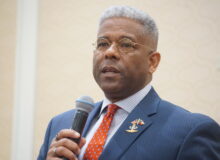If you thought the Obama administration could muck up the Middle East, welcome to Team Biden.
Iran is gleefully enriching uranium toward weapons-grade levels, Beijing is brokering deals between Tehran and Riyadh, and the Arab League permitted Bashar al-Assad back into the fold. The United States should clearly work closely with its chief regional ally since our interests and overall regional stability suffer when American leaders berate Israel rather than work with it.
Jerusalem is understandably worried about Iran’s nuclear enrichment and proxy armies. Shouldn’t this and wanton Iranian aggression also concern Washington, and couldn’t working on them together lead to deeper engagement on issues, including China’s regional influence?
Yet rather than focus on American interests in the region, the Biden administration — with help from deceitful media allies — has poured its energy into inappropriately meddling in Israel’s judicial reforms and demanding more “engagement” with the Palestinians.
Biden’s backward priorities contradict his goals.
Much like Obama and House Democrats, Biden hopes to pacify the Ayatollahs. Even after years of failed talks, he thinks an agreement pausing Tehran’s nuclear program will eventually lead to some mini-diplomatic breakthrough to ameliorate the situation. Unfortunately for Biden, the mullahs haven’t rushed to return to the nuclear deal Obama crafted, and the Trump administration rightly exited.
The president’s inane desire to draw down the U.S. military presence across the Middle East also weakens his hand. As Washington’s ability to exert force in the region declines, so will its influence over the domestic arrangements abroad. For example, Israel must respond accordingly if China’s invidious presence grows and America’s wanes.
Jerusalem may not court Beijing like some Gulf States, but it will likely become less responsive to Washington’s concerns. And if Biden is determined to reach some “understanding” with Iran — other than pitiable appeasement — or the broader Middle East, he must stop giving Israelis pedantic lectures.
The problem comes when a leader isn’t prepared. Jimmy Carter harangued America’s friends on human rights and other issues to little effect. Biden is in danger of repeating the mistakes, and the Palestinians would be the biggest losers.
Having grown disenchanted with Henry Kissinger’s incremental approach to Arab-Israeli negotiations, Carter tried for a comprehensive peace with all of Israel’s neighbors. Rather than slog toward a settlement with the Palestinians, Soviets, and Syrians, leaders in Egypt and Israel sidestepped the White House peace effort and pursued a bilateral agreement. Egypt got the Sinai, Israel got peace, Carter got a photo-op for hosting the final round of talks, and the Palestinians got nothing.
The rogue Palestinian leadership has long irked their fellow Arabs and hurt any chance for diplomacy. If Biden wanted to help stabilize the broader Middle East, he’d realize his noxious Iran policy — like the catastrophic Afghanistan pullout two years ago — makes the region more unstable.
Opining earlier this summer at Jewish News Syndicate, Eric Levine argues that Israel faces a Hobbesian choice:
“If it attacks, the attack will almost certainly trigger a regional war—unless the U.S. jumps in to prevent it from escalating—that will see tens of thousands of rockets launched by Iran’s terrorist proxies Hezbollah in Lebanon and Hamas in Gaza at the heart of Israeli cities. It will be a national and humanitarian disaster. The alternative, however, is worse. A nuclear Iran threatens the lives of nine million Israelis. If the Jews have learned anything from history, it is to believe what your enemies say. Iran continually says it will wipe Israel off the map.”
I am headed to the Holy Land next month. I look forward to getting firsthand glimpses of the situation and, unfortunately, likely confirming my prior concerns.
r
Ari Kaufman is a correspondent for several U.S. newspapers and magazines from Minnesota and Ohio to Tennessee and Virginia. He taught school and served as a military historian before beginning his journalism career. He is the author of three books and a frequent guest on radio programs and contributes to Israel National News and here at The Lid
f






